It’s February 25, 2023, and I’m driving east along Highway 126 to pay a short visit to Bunk+Brew Hostel in Bend, Oregon. My goal is to find out more about the elusive world of seasonal employment and collect interviews that will inform my process. As I gain elevation over Santiam Pass, snow and slush crunch under the tires of my 2012 Volkswagen Tiguan. I’m confident that my four-wheel drive will carry me safely to my destination, but that confidence wavers while checking the forecast during a pit stop.
Getting there won’t be an issue, but making it back is looking more questionable by the minute. Consistent predictions of snow flurries blanket the forecast, but I decide to keep chugging along, as I’ve already come this far.
“If I get stuck, then I get stuck,” I mumble to myself as my wheels catch on another patch of slush. “I’ll just play it by ear.”
By the time I depart from the hostel, it’s Wednesday, March 1. My one night had turned into four, and my understanding of the seasonal work lifestyle – and just how quickly one can become immersed – had forever changed.
“It’s like the Hotel California,” says Ada, a Bunk+Brew employee. “You can check out, but you can never leave.”
The Bunk+Brew Historic Lucas House in downtown Bend has been acting as a landing pad for travelers and seasonal workers since its inception. The structure, built in 1910, holds the title of the first and oldest brick building in Bend. Bunk+Brew houses people from all walks of life, so there’s no shortage of stories to absorb once you step inside.
The hostel culture puts an emphasis on the “Dirtbag” lifestyle, as it’s described by each and every employee who comes through the revolving door. Dirtbag, as a term, encompasses the idea of living for the experience – even if that means getting your hands dirty in the process. It can mean jumping from seasonal job to seasonal job or sticking around somewhere long enough to plant roots, as long as each day feels like an adventure. The Bunk+Brew Dirtbags might live in a van, within the hostel walls or in a converted school bus like Colette Beckmann, general manager of the hostel. The Dirtbag ideology rings loud and proud on their website and social media pages, but most importantly within conversations around their shared identity.
The Bunk+Brew campus is made up of three buildings. The main building – the Historic Lucas House – currently houses around eight seasonal employees. In the summer, this number can get up to 20. The employees live on the top floor – dubbed the Penthouse – and the hostel guests take up the bunks and private rooms on the second floor. The Annex House is the other residential building and can hold up to 16 residents. The Bathhouse is the final building on campus and holds three showers and the famous sauna that keeps people coming back for more. There’s even a beer garden in The Backyard, with their own Bunk+Brew beer truck. Other food trucks are available for guests, residents or any local who finds themselves hanging out by the firepit.
Each Bunk+Brew employee is – somewhat – seasonal. According to Beckmann, they do all of their hiring from Workaway, which is an app for seasonal workers to find employment and housing in the location of their choice. Each employee works three shifts a week to cover their rent, and is required to stay for a minimum of only three months.
“I can never see myself working in a nine to five,” says Beckmann. “A lot of us are fed up with that being the only option.”
Once Beckmann found Bunk+Brew, it always seemed to draw her back in. She originally started working at the hostel while spending the winter at Mt. Bachelor as a ski instructor. Beckmann immediately fell in love with the community, and kept it close to her heart during a year-and-a-half long stay in Baja, Mexico. She returned to Bunk+Brew as the assistant to the general manager and was running the place within a month. That was two years ago, and Beckmann has called the hostel home ever since.
“It was everything I was looking for,” she says. “I’ve met so many wonderful, amazing people.”
Beckmann has committed this era of her life to helping the nomadic find a place that feels like home among the chaos. She recently spearheaded an effort to partner with Mt. Bachelor, so some of their seasonal employees can stay in the Annex House for an affordable price. The Annex can hold up to 16 residents for only $350 a month.
“That is the cheapest lodging you’re gonna find in Oregon, let alone Bend,” says Beckmann. “If you’re paying 800 or 900 bucks in rent, why would anyone come back to work for the mountain again? It all starts with housing.”
The rising cost of living in Bend has been a hot button topic among locals and largely has to do with the travel industry and the new influx of wealthy residents. According to a study done by Construction Coverage, Bend’s fair market rent prices rose by a margin of 37.4% between 2019 and 2023, as outlined in a report by Jack Harvel of the Source Weekly. The study attributes this steep incline to the U.S. underinvesting in housing before pandemic-induced disruptions to the workforce. The average studio apartment usually costs about $1,000 a month, and a one-bedroom apartment runs around $1,184, according to Construction Coverage’s study and Harvel’s reporting.
According to Glassdoor, a ski instructor at Mt. Bachelor makes an average of $17 an hour, which is simply not enough to sustain a comfortable lifestyle within the city limits. Lift technicians, baristas and other entry-level positions endure an even lower hourly wage.
“That’s why I’m so passionate about this,” says Beckmann. “People like me should be able to live in places like this. It’s so amusing when everyone asks, ‘what’s going on with our ski towns? Why is this happening?’ It’s because no one is diverting funds – like real funds – to support the people that make or break the resort.”
The tourism industry has experienced a boom since the pandemic. In popular tourist towns such as Bend, upper-class residents are quickly flooding the city limits and driving up the cost of living while they’re at it. For many pre-existing residents, living in Bend is slowly making less financial sense. The community around the hostel set out to solve this issue, one bunk at a time.
“All leads back to this really similar rhetoric, which is taking care of the small guys,” Beckmann says.
Ada, who chose to go by her first name due to privacy concerns, is one of the youngest Bunk+Brew employees at only 20 years old. She never expected to end up living and working at the hostel. Originally from Salt Lake City, Utah, Ada began working at the front desk of Atlantic Aviation directly after graduating high school. She stayed in Salt Lake City for work but found herself craving something different.
In the summer of 2022, Ada began working at an outdoor camp near Bend. She found the Bunk+Brew community by accident, after an Airbnb fell through the cracks. Within a night, she ended up bonding with nearly everyone there.
Ada didn’t live or work at Bunk+Brew over the summer because she spent four months camping in her car and working at a summer camp for kids. Her days started with a coffee and a bagel and nearly always ended with a dip in the river. She spent much of her leisure time with people from the hostel, and they even helped to build her Nissan Versa into a temporary home.
“I was living purposefully,” Ada says. “It felt so good – I was just fulfilled.”
Ada’s off-the-grid summer indoctrinated her into the Dirtbag life. Each day was a new opportunity to experience the world with low stakes and low stress. The adjustment from fast-paced, everyday life caused her to shift her perspective.
“The amount of times I’ve caught myself being bored, it just means I’m literally existing,” Ada says. “A lot of people think being bored is bad. But in reality, you could just be at peace. It just feels boring because it’s not chaotic or stimulating.”
After her seasonal summer job was over, Ada went back to Salt Lake City to live at home and work as a gymnastics instructor. She found herself bit by the travel bug and was anxious to get back to a similar lifestyle as before.
“There was no purpose for me to be there,” she says.
Ada decided to buy a van so she could travel, work seasonal jobs and live day-by-day. The van she purchased was back in Oregon, so on New Year’s Eve, she made the trek to pick up her new mobile home and drive it back to Salt Lake City. Little did she know, she wouldn’t make it back.
150 miles outside of Bend, her back tire fell off the rims on the highway. She slipped on a patch of ice, and the car rolled over into a snowbank. Luckily, she ended up not getting hurt, but she was stranded and alone with nothing but the totaled remnants of her new home. After a while, two people pulled over to help her out: a father and his daughter, who was a nurse.
“She checked me out,” Ada says. “That was the day that I believed angels existed. People are just so kind. It’s ridiculous. You don’t know how grateful I am that I ended up okay.”
They gave her a ride to Eugene and bought her a hotel room. After spending a week in the city, Ada changed her plans for good.
“I stayed in Eugene for a week and contemplated my whole life,” she says. “That’s how I ended up working here, pretty much.”
Ada returned to Bunk+Brew as an employee and quickly got a job in one of the kitchens at Mt. Bachelor. She’s been living in the Penthouse ever since, with only the belongings she originally came here with. Ada found a way to be happy with her circumstances, and hopeful despite the wrench in her original plan.
However, not everyone found the hostel in dire circumstances. Many Bunk+Brew seasonal workers are looking for a change post-grad, instead of continuing on to a typical nine to five. Sydney Utsey is a Bunk+Brew employee from New Jersey who attended Morgan State in Baltimore, Maryland. She studied economics during her undergrad and decided to make a change instead of continuing on to graduate school.
“I would have been stressed if I went back to school,” Utsey says. “Honestly, during my last semester of senior year, I felt like I was suffocating.”
The American Psychological Association’s Stress in America study found that adults aged 18 to 23 – Gen Z adults – suffer from significantly more stress than previous generations. Of those attending college, 87% of the participants said that their education was significantly linked to high stress. High amounts of stress are directly linked to student burnout, according to the same study.
Utsey described East Coast higher education culture as a “rat race.” As the hustle and bustle wore her thin, she made a pledge to try something new after graduation. She came to Oregon in August 2022 and committed to Bunk+Brew’s three-month minimum for employment. She fell in love with the hostel – and the idea of snowboarding – and has been there ever since.
“It’s just a difference of cultures,” Utsey says. “I become more mature in dealing with my emotions and not just suppressing them. I’ve been more unapologetic about who I want to be, unlike before, where I would be a little nervous expressing who I am.”
Utsey, like many others, found solace in the simplicity of seasonal housing. For now, she is content with working at Bunk+Brew as well as a hotel downtown. She plans to spend her youth traveling and continuing to forge relationships along the way. Utsey says in her hometown, the status quo involves settling down early with a spouse and a career.
“Some people like that familiarity and comfortability,” Utsey says. “Personally, I’m just so curious about the world. I want to experience it all and then determine what I want to do with this existence.”
I resonated with Utsey’s reflections on student burnout. As an active UO student who was spending time at Bunk+Brew when I should have been at school, I actively questioned why I was spending so much time, money and mental energy on a degree. This is a conversation I’ve had a million times over with my peers, and the conversation usually ends with a yearning to break our seemingly-endless routine. After getting to experience the other side, I can’t say that I didn’t want to join them.
But there’s two sides to every coin. During my four-day stay at Bunk+Brew, I spoke with many residents – off the record – about being a college student versus doing seasonal work. While everyone seemed to love what they were doing, some spoke about how they sometimes wished they went to college and got a degree, just for the sake of security. This is not to negate the fact that many people staying there hadcompleted a degree or were actively in school online.
Utsey’s story is just one example of Bunk+Brew employees accidentally stumbling upon a life-changing community. CJ Vermillion, a previous Bunk+Brew guest-turned-employee, actually got hired just minutes before our interview. Originally from the Washington D.C. area, Vermillion moved to Bend two years ago to work at Mt. Bachelor. He returned to D.C. only to find that he had been bit by the travel bug and was anxious to come back.
Vermillion returned to Bend on a trip, found Bunk+Brew and fell in love with the community and lifestyle. After some time going back and forth, he decided to extend his trip indefinitely and moved into the basement the day after our conversation.
“I really immersed myself,” Vermillion says. “I just kind of became part of the hostel. I’m excited to see how everything plays out.”
Vermillion’s speedy induction is not uncommon. For most employees, it doesn’t take long to decide they want to work here and really immerse themselves in the flow of everything. Most guests-turned-employees share a few things in common. They need a change of pace, they value solitude as well as tight-knit community and they want every day to feel meaningful – and fun.
“We all have our own preferences and paths we’re gonna go on,” says Vermillion. “For me, I value experience. So I like doing this stuff right now, especially when I’m still young.”
After announcing that he got hired, Vermillion was met with excitement and warm embraces. He’s excited to start this new chapter and lean into the Dirtbag lifestyle.
One day at the Bunk+Brew can feel like five, and I found that Ada’s comparison to Hotel California wasn’t far off-base. Most guests and employees are gone throughout the day – working, riding the mountain, climbing or hanging out with friends. There is always someone on shift, which involves manning the front desk, doing dishes and changing out bunks for the next batch of guests. The nights, however, are when the hostel comes alive.
There always seems to be a deeply involved game of chess at the dining room table and a TV show on in the living room. Everyone takes turns cooking dinner, and I found that someone was happy to share their meal with me each night. Locally brewed beer is tapped, poured and shared among familiar and fresh faces, and everyone has plenty of stories to share late into the night.
On the first night I stayed at Bunk+Brew, I walked right into a pre-birthday-party gathering. After an hour, I had joined an impassioned game of hacky-sack, been given a celebratory fake mustache and gotten on a first-name basis with a well established group of friends. Bunk+Brew brings out the welcome wagon for whoever comes through the door.
In the wintertime, the hostel nightlife is usually pretty contained, except for a night or two a week where they invite local artists for live music. But according to Beckman, in the summertime, something is always happening.
“All summer it’s three to five days of live music, jam bands, karaoke, open mic, ukulele nights – it’s just endless here,” Beckmann says.
But on top of all the excitement, Bunk+Brew lends itself to solitude and serenity. There’s always a place to escape and someone to escape with – if one so desires. I found that each person I spoke with seems to value internal peace above all else. That’s the thing that sets this community apart from those who revolve around hustle culture – within the Dirtbag lifestyle, time to breathe is a priority. Balance is a necessity. Adventure is what happens when that cup has already been filled.
“I’m definitely more open-minded,” says Utsey. “I’m becoming more in tune with my emotions. I’ve been able to live in my truth more and become myself more authentically.”
On March 1, I pack up the Tiguan and say my goodbyes with a fresh perspective. For a long stretch of Highway 126, I drive in silence with my windows down, cold air and snow flurries reddening my cheeks. I inhale and exhale, letting the memories replay in my head and reflecting on something Beckmann told me during our first conversation.
“The biggest thing about seasonal employees – that a lot of people don’t get – is they want to meet people like them,” she says. “They want to meet fellow Dirtbags. That’s why it’s important to suck in lost people while they’re lost. That’s where the community comes in.”


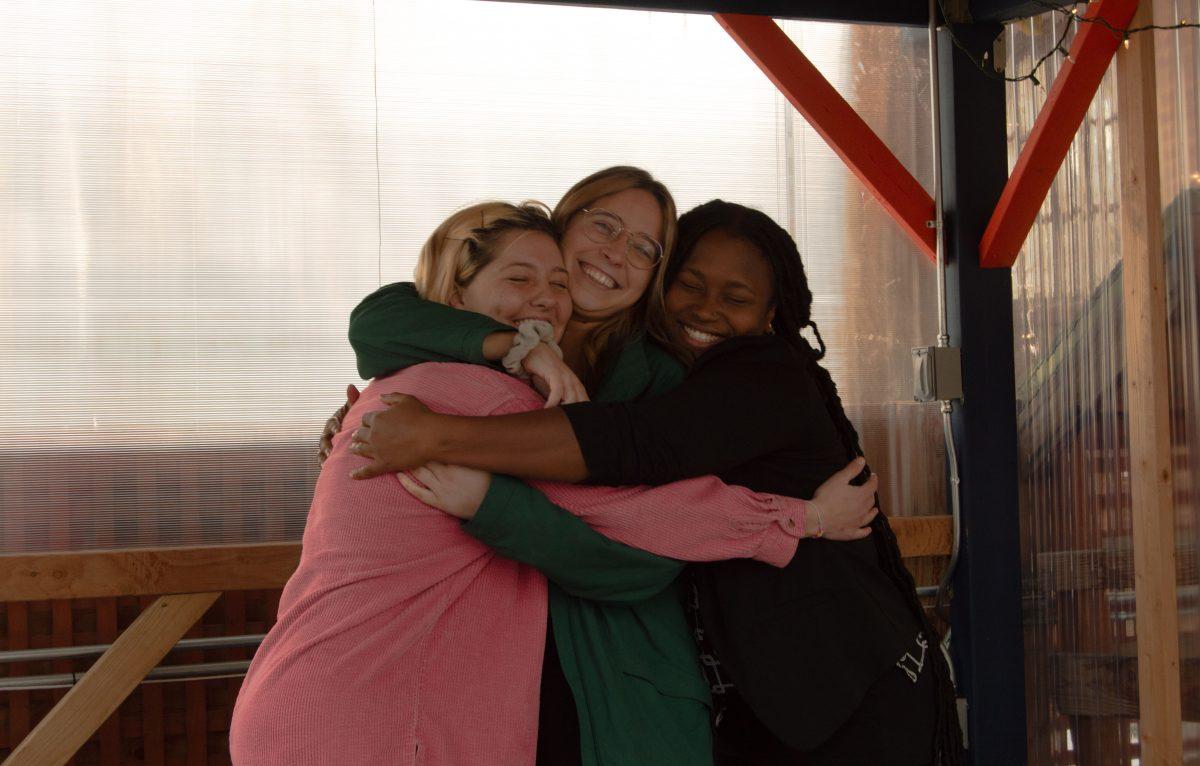
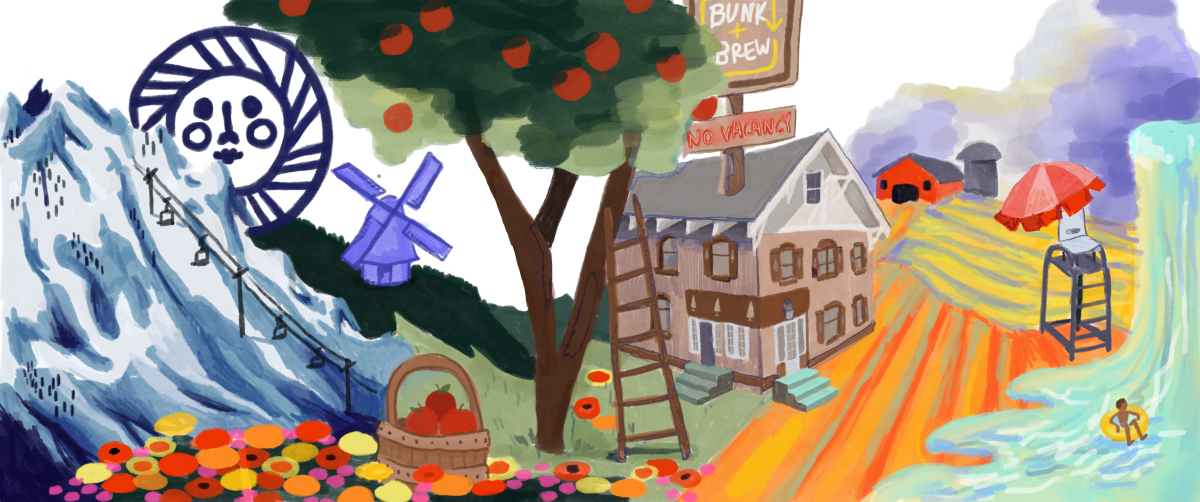
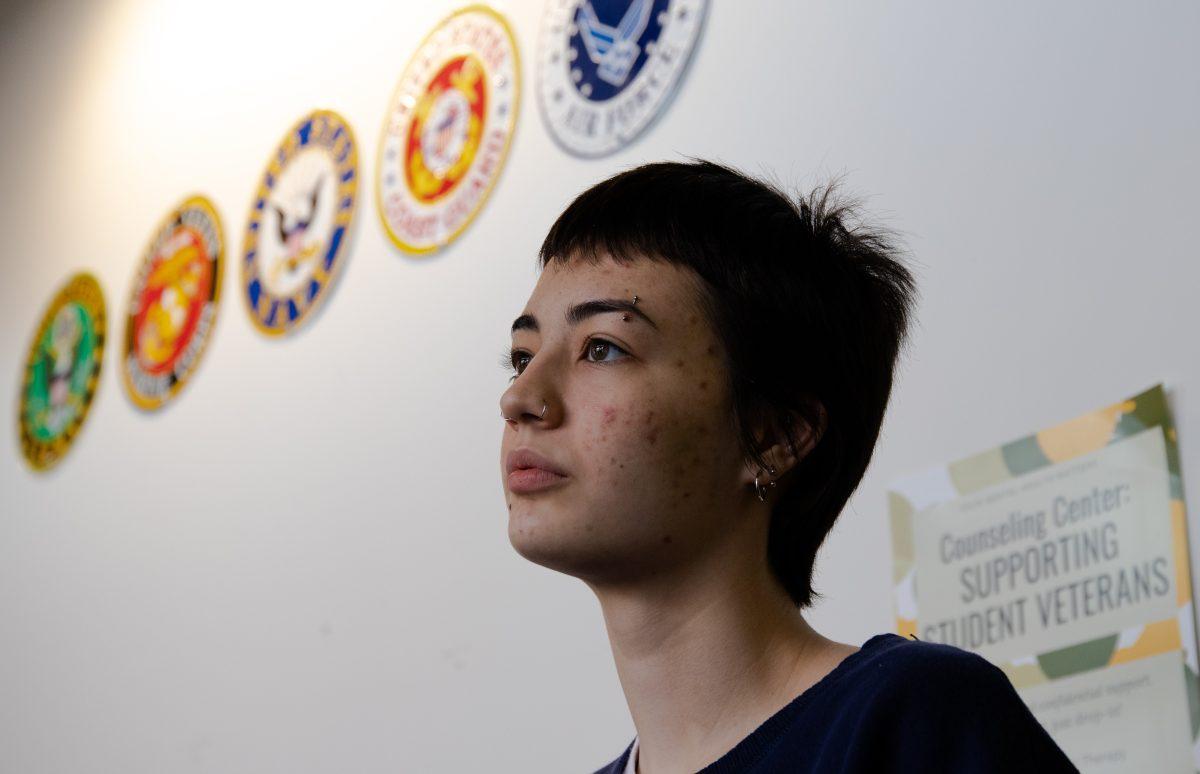
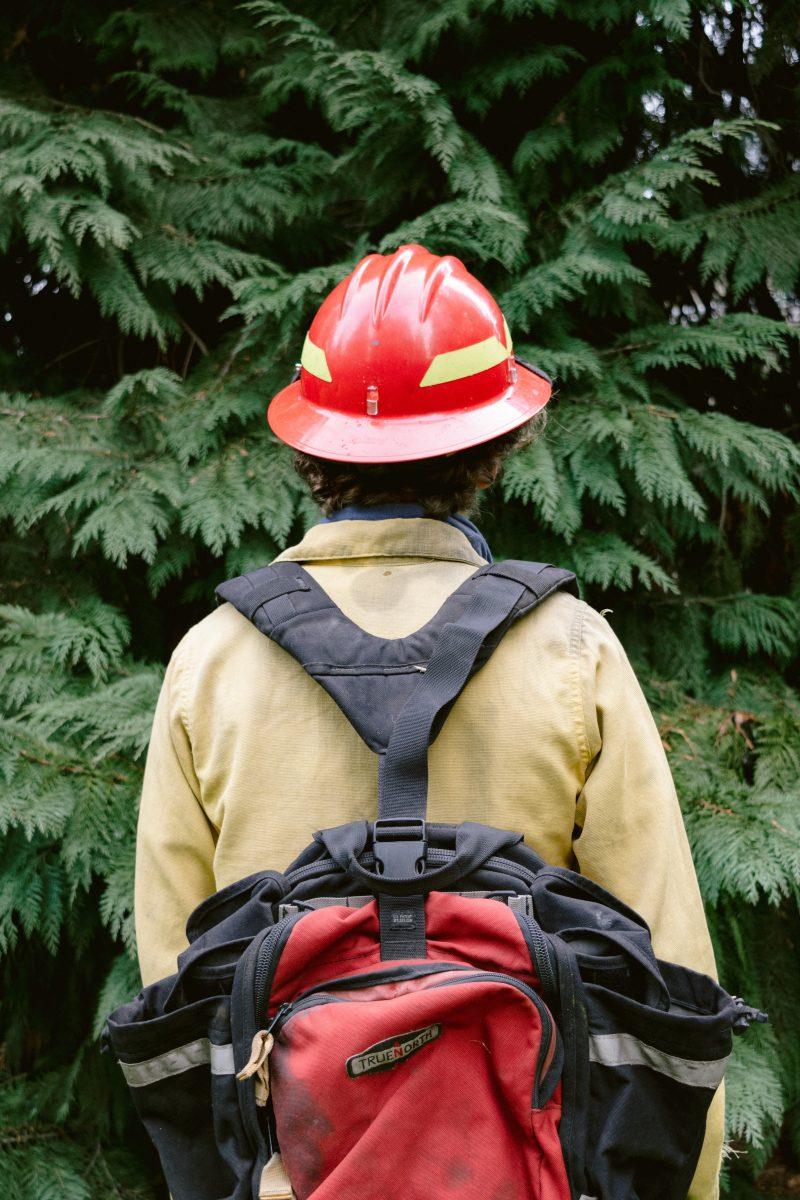
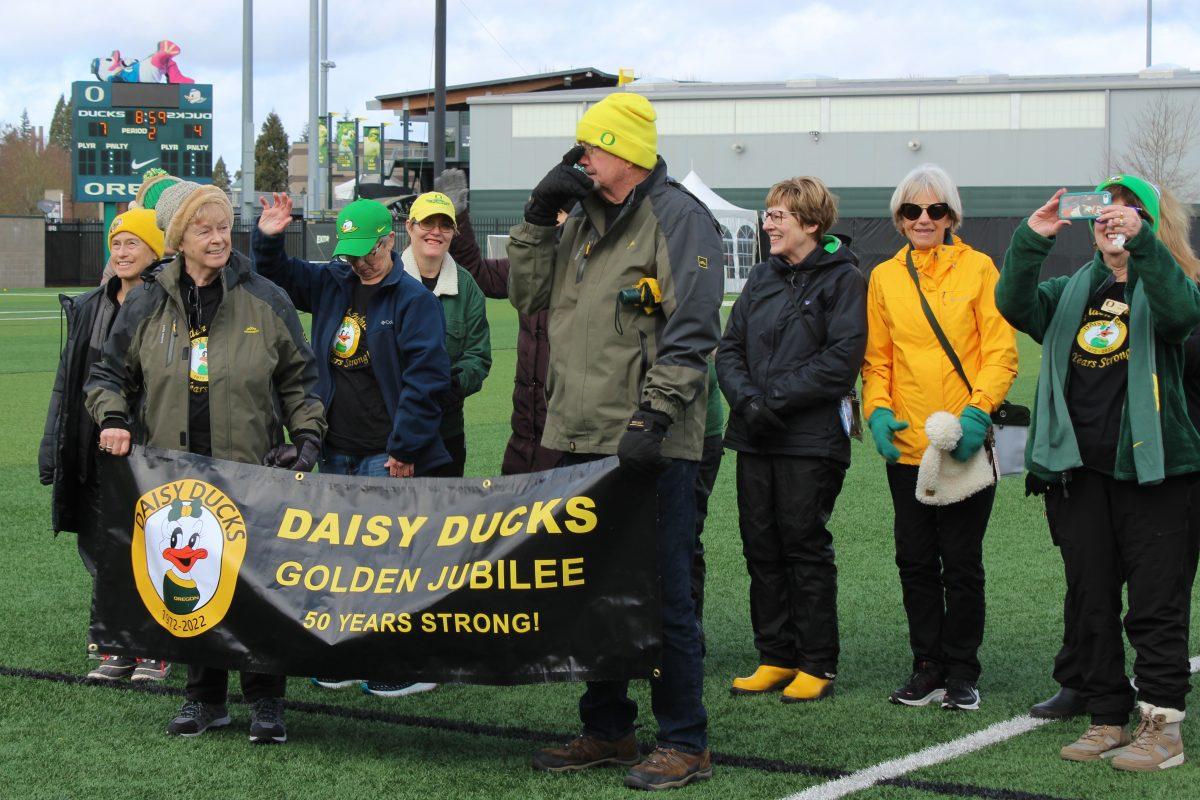


![[Photo Courtesy of the Lara Family]
Ruben embraces his beloved childhood goat, Katrina.](https://ethos.dailyemerald.com/wp-content/uploads/2025/05/katrina-1-1060x1200.jpg)


